‘RSS is difficult to understand and easy to misunderstand,’ says Ram Madhav
Ram Madhav, BJP National General Secretary, in Open conversation with S Prasannarajan
 S Prasannarajan
S Prasannarajan
 S Prasannarajan
S Prasannarajan
 |
18 Oct, 2017
|
18 Oct, 2017
/wp-content/uploads/2017/10/Rammadhav1.jpg)
RAM MADHAV INHABITS many worlds. An RSS pracharak from East Godavari in Andhra Pradesh, he today straddles the shakha, the arena, and the seminar room with an aplomb rarely seen in leaders moulded by Nagpur. Lately, it’s more arena, as he, as a general secretary of the BJP, takes care of two volatile regions for it, J&K and the Northeast, places where geography, ideology and history conspire to make them a permanent challenge for the party as much as Delhi. Which does not mean he’s just a suave Sangh apparatchik assigned to political field duty. There’s a lot more to the man who has also become the official patron of the intellectual Right. As the head of India Foundation, a think tank for the Right, he plays a key role in the making of a counter-Establishment of the mind to take on the Left. Writer, speaker, networker, organiser, conscience keeper and evangelist at large, Ram Madhav continues to be the Sangh Parivar’s chosen man to bring ideas and ideology together for the cause. Excerpts from a conversation.
Is it identity that defines politics today?
‘Identity politics’, as they call it, has been the bane of many democracies, including ours. Caste, religion and other identities become the influencing factors in voter behaviour. But right now, two things are happening: one, the electorate is getting politically mature and hence couldn’t be influenced through identity politics. We have seen it happening in many elections of late. There is also a conscious effort by the Prime Minister to steer the debate towards development and performance rather than identity.
Has a masculine nation come back to haunt us?
The idea of machismo in governance is propagated by people who still cannot come to terms with our policies. For the first time since independence, there is a complete ideological shift in the political establishment. Those who cannot adjust to the new political narrative will use terms such as ‘hyper- nationalism’. Even the other day, the Prime Minister has said let’s put an end to communalism. But our approach will be different. And that’s why people have elected us. We are not here to follow the same pattern of politics.
The pattern set by Modi, right?
We sometimes play with the Amitabh Bachchan dialogue: “Mere paas paisa hai, bangla hai, gaadi hai, naukar hai, bank balance hai, aur tumhare paas kya hai?” We say: “Humaare paas Modi hai”.
He’s the only one you can depend on, the only hope…
We have not seen this kind of a leader in the past twenty-five years. He is a leader respected and loved in equal measure. But it’s definitely not a one-man show. The Prime Minister never interferes in party affairs. When a minister tries to interfere, he tells him to leave the party matters to the party leadership. If we have to decide on who should be the leader of a state, we consult everybody but nobody enjoys absolute power.
Do you think cultural and religious polarisation has become starker since 2014?
I don’t think so. But cultural assertion is happening. False notions about political ideas like secularism have shrunk the space for culture in public life. However, it is finding its expression today more freely and conspicuously. Since long suppressed, its sudden manifestation may look starker, but there is no effort to polarise the polity. Rather, the effort is to unite.
The idea of machismo in governance is propagated by people who still cannot come to terms with our policies. For the first time since independence, there is a complete ideological shift in the political establishment
Should your cultural identity be determined by what you eat?
I have publicly said that the cow is sacred, cow protection is sacred, but life itself is sacred. In the name of one sacred thing, you cannot destroy the sacredness of life itself. Having said that, if you insist that the discourse on cow protection is a sign of backwardness, then let me ask you: why do you have it in the Constitution? Why do you have it as a directive principle? We have certain values and they need to be protected, but not through shrillness and violence, and not by shouting from the street or TV studios.
Will you add the adjective ‘cultural’ to your idea of nationalism?
For want of a better word, we do. Cultural nationalism has to be understood in the sense that the national identity in our country is not territorial or based on language, race and religion. It is the millennia-old cultural and civilisational ideas that form the core of national life here. It is broad, liberal and catholic. That is the reason why India’s cultural continuum was never disturbed even when it was ruled by kings and rulers from outside.
Do you think being Indian and being Hindu are the same in the current political narrative?
The political narrative should be based on the identities defined by the Constitution only. We are all Indian by that definition. However, the overarching cultural-civilisational identity holds the two as coterminous.
Isn’t it problematic for any party or organisation to claim ownership of Indianness?
Firstly, I don’t think anybody is claiming ownership of Indianness. For that matter, in our country, except for a handful of groups, nobody denies the identity of Indianness. It is true that in our political discourse today there is greater emphasis on certain issues. But that should be taken in political spirit only and in that sense there shouldn’t be any objection. If you recall, our political discourse has always been dominated by one or the other such issue. Under Nehru, those who didn’t call themselves ‘socialist’ were all treated as retrograde. Secularism-communalism became the measuring rod of political correctness in the last two decades. Nowadays it is ‘Indianness’. We used to object to the discourse earlier. Now someone else finds fault with the narrative. But this narrative is by far the broadest one.
India is a country that had stood up to the most dictatorial regimes. If anybody is citing an atmosphere of fear for not speaking up, they are cowards. It is another matter if they don’t find anything to criticise and hence make false complaints of ‘atmosphere of fear’
Can politics be independent of religion?
Politically speaking, we must strive to keep them separate. It has to be a collective endeavour, without giving exemptions to any group based on a minority/majority distinction.
Is there a crisis in the secular state?
There is no universally accepted definition for secularism. As we always argued, India shouldn’t be importing this idea from Europe. We have our own tested concept of Sarv Panth Samadar Bhav—equal respect to all religions. The European concept of secularism has meant different things to different people. It ended up in minorityism, appeasement and irreligiousness. Speaking of a secular state, there is no such danger in India to the state being secular in its true sense of equidistance from all religions. But around the world, a serious challenge is being posed to secular democracies in the form of radical Islamist movements.
You are closely associated with RSS. Why is it seen as an extra-constitutional power centre?
RSS is difficult to understand and easy to misunderstand. It is true that some people have issues with RSS. Compared to Sonia and her NAC in the previous regime, the RSS is anything but extra-constitutional. The funny part is that on the one hand some people complain that the RSS has become the extra- constitutional power centre. On the other hand some other experts analyse that Modi is not listening to the RSS. The fact is that the RSS as an organisation is far removed from day-to-day affairs of politics. But then the RSS is nothing but a collection of individuals inspired by the idea of national good. Those individuals today occupy important constitutional posts. They can’t be called ‘extra-constitutional’.
Historically, the Right loses the culture war and wins the economic war. Do you think both remain unresolved here?
The Left-Right divide in the West is a misfit in India. There are several areas, including the economy, in which the Indian Left and the so-called Right are seen on the same side of the fence. Both opposed unbridled liberalisation and argued for regeneration of the national economy.
The doomsayers on the economy are multiplying, even from within the fold.
Prime Minister Modi has introduced certain transformative measures in our economy in order to set its basics right. No country can aspire to become a developed country with massive amounts of corruption, black money, parallel economy and tax evasion. The measures undertaken by the Government are intended to correct our course in these matters. No transformation is painless. But the Prime Minister is confident that the Indian economy will come out of this seemingly difficult transitional phase. Where some experts are critical of our economic future, many real experts from all over the world—from IMF to Bloomberg— are predicting a bright future. They are saying that India will surpass China to emerge as the third biggest economy in some years from now. Our efforts to set India’s economic basics right include removing poverty, homelessness, lack of cleanliness and sanitation, communalism and casteism. We are addressing them with a time frame. The Prime Minister has called for a New India by 2022, when India celebrates 75 years of its independence.
I have always told our supporters that they have to give up the mindset of victimhood, which they have suffered from in all these years. Today the nationalist idea is occupying the centre stage of our polity. As victors in this battle of ideas, we have to be graceful and dignified
The refrain from dissenters and the disgruntled is that people within the establishment are too scared to speak up. Is there an atmosphere of fear? If so, who are they afraid of?
The amount of criticism that we endure being in power has not been experienced by any ruling party before. As you yourself pointed out, even our own members today stand up and criticise, albeit on wrong surmises. The country has seen prime ministers who were afraid of speaking up before the high command. Today there is no such situation in the country. There is greater coherence and unanimity within the ruling dispensation, thanks to efforts from within. India is a country that had stood up to the most dictatorial regimes like Indira Gandhi’s during the Emergency. If anybody is citing an atmosphere of fear for not speaking up, they are cowards. It is another matter if they don’t find anything to criticise and hence make false complaints of ‘atmosphere of fear’.
Being involved in J&K, do you think the struggle in Kashmir has lost the element of Kashmiriyat?
Real Kashmiriyat is in giving up violence and following a path of peace and reconciliation. Kashmir has witnessed horrible crimes in the name of misguided Kashmiriyat. Real Kashmiriyat is an integral part of Hindustaniyat, and we are committed to restoring the real Kashmiriyat. The terrorists and their over-ground supporters like sections of Hurriyat don’t represent real Kashmiriyat. People in the Valley are realising that.
Has the struggle become one with the global struggle of Islamism?
There are efforts to inject Islamism and ISIS ideology into the militancy in Kashmir. In any case, Pakistan has already injected a religious vocabulary of Jihad into Kashmiri terrorism. We will not allow space for such radical Islamist ideologies to gain a foothold in the Valley or elsewhere.
You head a think-tank. Do you think we are losing civility in our public arguments?
I have always been a votary of civility in public discourse. It does bother me to see a degeneration of the public discourse in our country. I have always told our supporters that they have to give up the mindset of victimhood, which they have suffered from in all these years. Today the nationalist idea is occupying the centre stage of our polity. We are the ruling dispensation. As victors in this battle of ideas, we have to be graceful and dignified. Aggressive and undignified discourse doesn’t put off only adversaries; it does hurt many right-thinking people who are our own supporters. There shouldn’t be any place for trolling and abuses in public space.
I have to add that the adversaries, who crying hoarse about the trolls, should look in the mirror first and introspect. The amount of lies, abuses, negativity, motivated slander that they have indulged in in all these years makes them eminently disqualified to complain against trolling today. My appeal for dignity in discourse is not a justification of the complaints of dishonest adversaries, but just an appeal for sobriety in public discourse. Also important to remember is that we need two hands to greet and clap.
Do you think an intellectual establishment of the Right is still at its early evolutionary stage in this country?
I think so. But my reasons are different. I belong to RSS, which is a grassroots organisation committed to activism in public life. It has brought about an unprecedented change in our public life in which, for the first time, you find people owing allegiance to a non-Congress nationalist school of thought have come to occupy all the constitutional positions in the country. It is no mean achievement. There is a coherent and well-developed thought process behind this massive achievement. What the so-called ideological Right needs to do is to find proper articulation of it. Essentially it needs boosters and amplifiers. It needs to believe in co-option, as there are many intellectuals in the country who identify with the core thinking of the Right, yet they are outside the organisational structure of it. Globally also, non-Left and non-neo liberal ideas find more traction today. In a way, borrowing from John Micklethwait, I would say that we are living in a Right world today.

/wp-content/uploads/2025/01/Cover-Indian-Music.jpg)





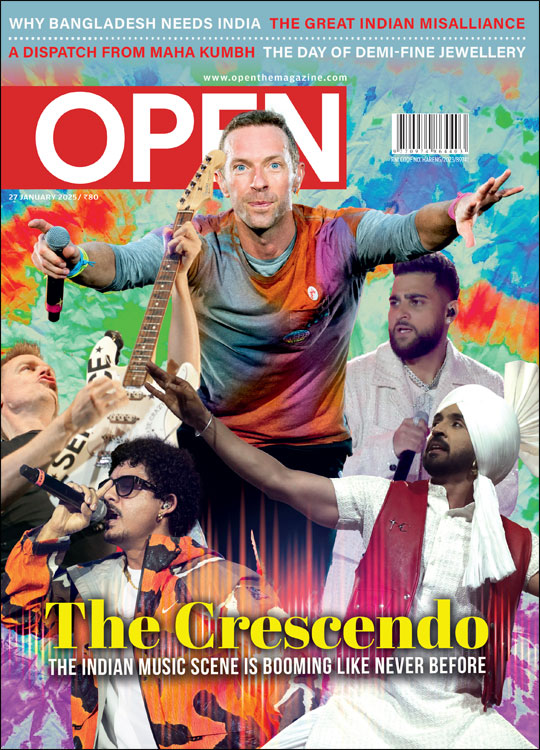
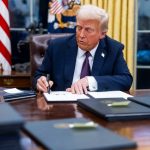
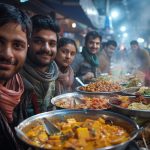
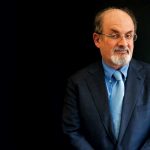
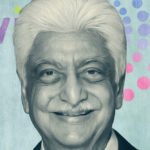
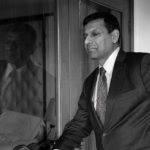

More Columns
Israel-Hamas Ceasefire: Five things to watch out for in the days to come Rahul Pandita
Trump’s First Day at Work Siddharth Singh
What Are the Natural Solutions for Acidity and Bloating Dr. Kriti Soni